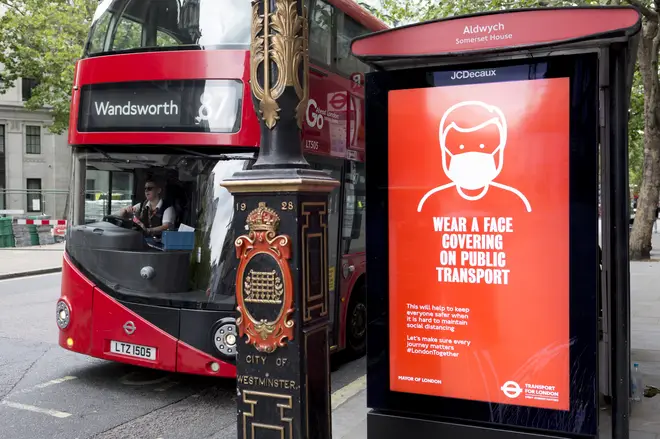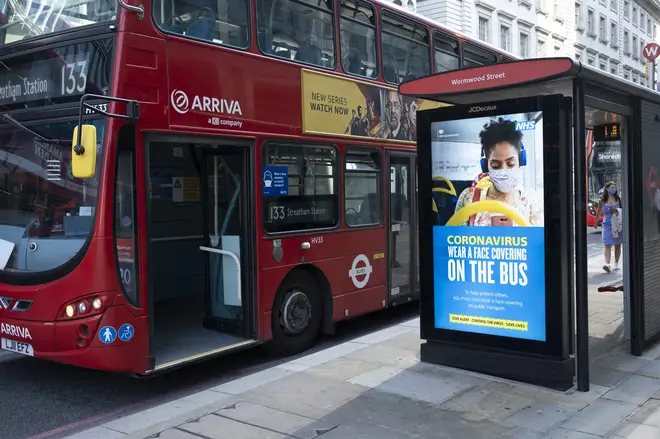
Nick Ferrari 7am - 10am
27 July 2020, 12:06

Lives could have been saved among London bus drivers had lockdown been imposed earlier, a major report has found.
Most of the 29 Transport for London (TfL) bus drivers who died after contracting coronavirus stopped work ten days either side of 23 March, when lockdown was imposed, a team from University College London (UCL) concluded.
Experts also found male London bus drivers aged between 20 and 65 were 3.5 times more likely to die from the virus between March and May than in other occupations across England and Wales.
The report, from UCL’s Institute of Health, was commissioned by TfL to address significant concern at how many public transport workers in the capital had died during the crisis.
In their findings, the authors said the pattern of infection suggested the drivers caught the virus before lockdown. “After lockdown, death rates came down among drivers as they did in London as a whole and nationally," they wrote.

"The study reinforces the point that lockdown is the most effective measure for reducing mortality among bus drivers; it significantly reduced passenger use of buses and hence reduced risk of infection for bus drivers as well as passengers.”
They added: “In addition to reducing exposure of drivers to infection in their line of work, lockdown reduced overall levels of transmission in London. Had lockdown come earlier it is likely that many fewer bus drivers would have died.”
The report, covering 27 of the 29 deaths, also identified a “high proportion” of the drivers were from BAME backgrounds, and many had underlying health conditions. In seven cases, high blood pressure and hypertension was a contributory factor.

LBC questions Sadiq Khan on London bus driver deaths review
A high proportion of drivers who died also had a number of personal characteristics which enhanced their risk to coronavirus, such as their ethnicity, and living in areas with above-average levels of deprivation in London boroughs with the highest coronavirus death rates in April 2020.
The academics also identified higher mortality for bus and coach drivers across England and Wales from March to May, not just in London.
TfL said measures brought in to protect bus drivers in the capital included hospital-grade disinfectant in the drivers' cabs, the parts of the bus regularly touched by customers and in staff welfare facilities.

"Someone spat at me": London bus driver terrified he'll catch coronavirus
It also removed the seats nearest to drivers and sealed up holes in the partition between drivers and passengers, and introduced middle-door boarding so passengers didn't need to stand for any length of time next to drivers.
Lilli Matson, TfL's Chief Safety, Health and Environment Officer, said: "We have been devastated by the tragic deaths of our colleagues during this pandemic.”
She added: "The recommendations in this report provide a roadmap for action to further protect bus drivers. It is clear from this piece of work and others that there are certain characteristics that make people more vulnerable to coronavirus. We will work with our bus operators to ensure that they consistently carry out risk assessments and appropriate support is given to those that need it.”